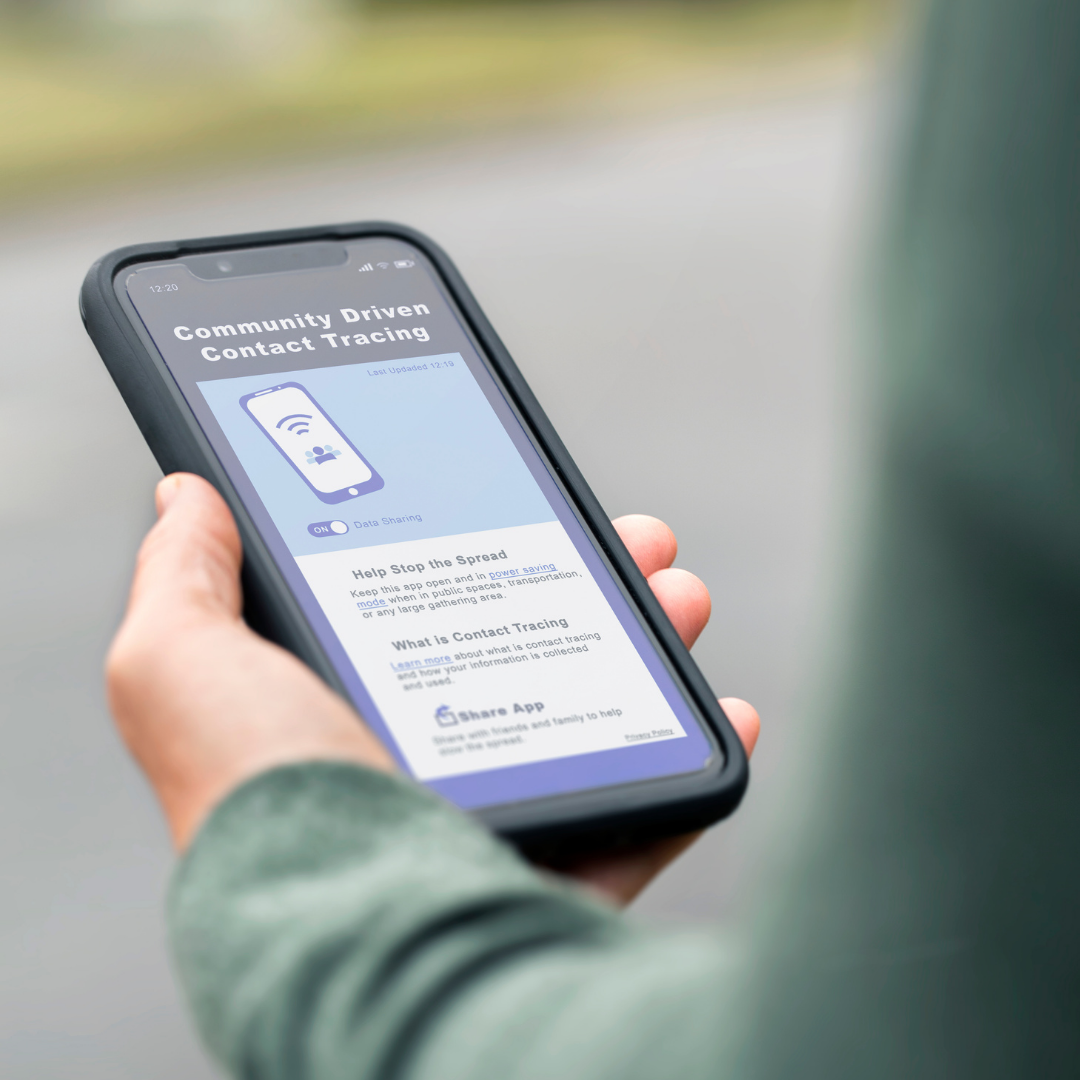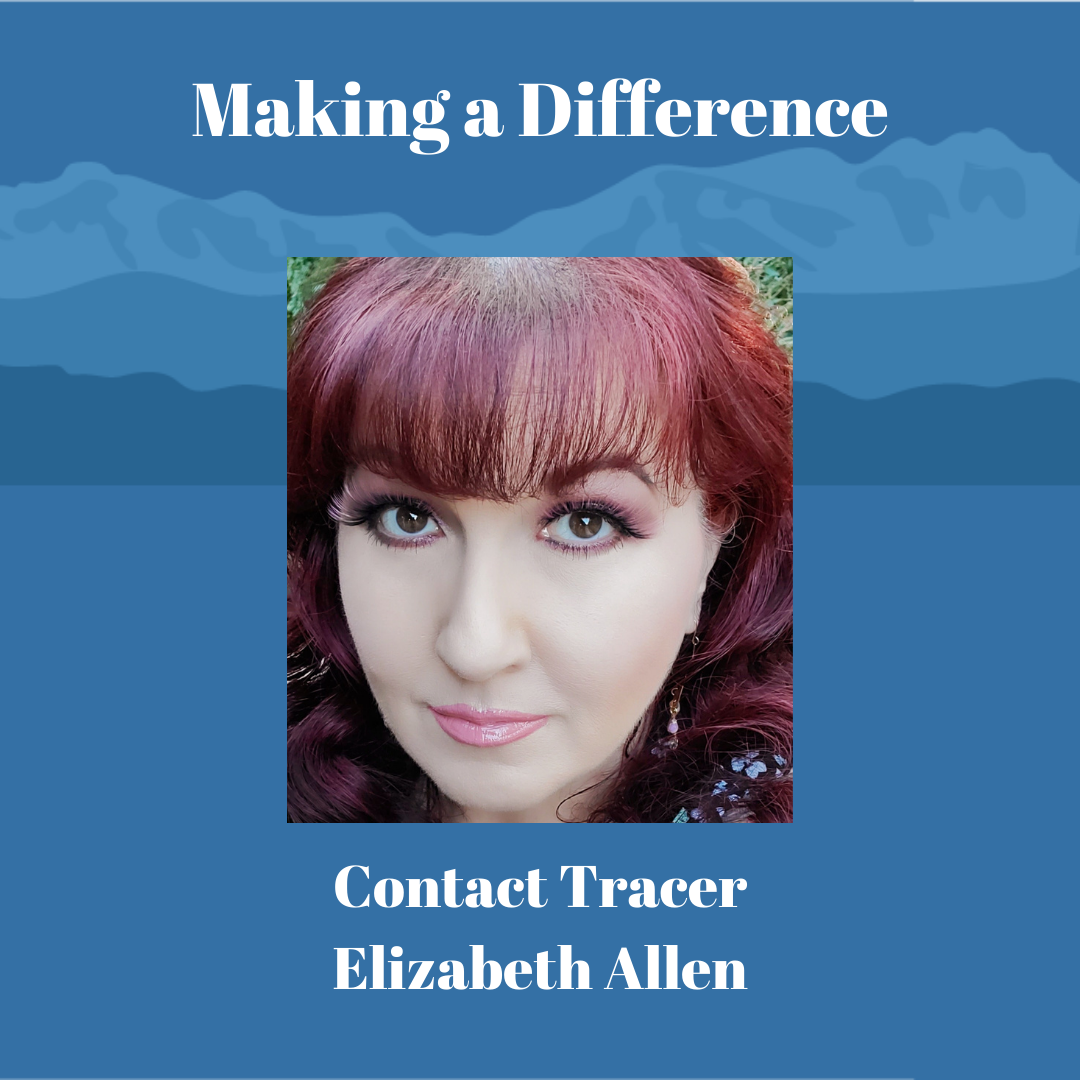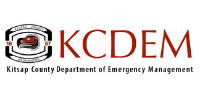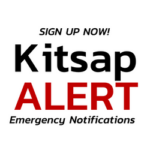
Elizabeth Allen was a veteran of eight years as a legal assistant in the Kitsap County prosecutor’s office when she was asked to take a temporary assignment reinforcing the ranks of case investigators with Kitsap Public Health District’s COVID-19 unit. Before she returned to the Courthouse, she shared some insights and experiences from her months as a contact tracer:
What was your initial reaction to knowing you would be working on COVID response?
I volunteered to go to the health district while the COVID program was being set up, so I was excited to join the team and be able to assist in the response instead of just watching the news about what was happening in our community.
What was it like going from your job at the county to learning how to become a CI?
I found that I used many of the same skills in dealing with people. People talk to the prosecutor’s office during difficult life events. Many times they are scared, injured, or grieving a loss and need someone to give them information, facts and support for navigating an unfamiliar situation. People exposed to or infected with COVID experience many of the same emotions and need the same types of support getting thru their illness, isolation or quarantine period.
What would a typical day be like? How many cases might you go through?
When I started with the COVID response, the health district was making daily phone calls to check in with everyone who was in quarantine or isolation to see how they were feeling, if they had all the resources they needed to stay home safely, and many times answer questions about their specific situations. Some days I would be responsible for 100-plus phone calls. When I started working on case investigations I would have one or two cases to investigate each day, and then reach out to anyone they were in close contact with to let them know about their exposure. When the case numbers started going up this fall, I could be responsible for investigating five or more cases per day.
Do you remember your first call? Were you nervous?
I don’t remember my first daily monitoring call, but I wasn’t nervous because it was simply checking in to see how the person was doing. I do remember my first case investigation, and I was a bit nervous because I wanted to make sure I didn’t miss anything. The training and opportunity to shadow other investigators before doing that first investigation, along with my supervisor’s support, helped build my confidence doing the investigations.

What was it like to talk to someone who has been diagnosed with COVID-19? How do they react when you call them? What kind of questions do they have, and what range of emotions are they experiencing?
The range of responses from people varied greatly. Some didn’t believe they could possibly be a positive case because they were asymptomatic – and many of those refused to cooperate with the investigation or isolate themselves to prevent infecting others. Some were angry that we were calling them and asking questions about where may have been infected and who they potentially exposed. Some people were terrified that having a COVID diagnosis meant they were going to become gravely ill or die, especially if they were older or had underlying health conditions. The majority of people were concerned about how their illness could progress, who they may have exposed, how being ill would affect their jobs and how they were going to protect their family members who weren’t sick. As an investigator or daily caller, I gave people the most up-to-date facts and guidance about the virus, and provided resources to help them get through their isolation period. But I also worked to reassure them and listen when they just needed someone to talk to about what they were going through.
As an interviewer, how did you approach your call to build rapport and make the case feel comfortable? Did you get better over time?
My first goal when calling someone was to find out how they were feeling and get to know a little bit about them so that they would be comfortable speaking with me. There is a long list of specific questions that are asked during an investigation and many of those could be answered while having a conversation. I never wanted the people I was interviewing to feel like they were being interrogated or were just statistics. I do feel that I improved over time.
What’s been the most fulfilling thing that’s happened to you (like a particular case where you felt particularly helpful)?
I worked with several families that needed things like food, cleaning supplies, or rental assistance and being able to reassure them and work with the case management team to have their needs met made me feel good, but having people say thank you for everything the health district is doing was the most rewarding.
What was the most challenging?
Talking to the family members of those who are very ill, or who have passed, is very difficult no matter what the cause is. But what I found most challenging was the amount of misinformation about COVID that is circulating, and which I feel is contributing to the continued spread of the virus. Much of my time speaking with people was spent giving them the most up-to-date information, research and facts in order to prevent them from exposing others.
What have you learned during your time participating in COVID-19 response that you would want your community to know?
Many people, from all kinds of backgrounds, have come together to help us get through this pandemic. I didn’t realize how much the health district did before COVID, and hope that the community realizes what a value it is having so many people working to improve the quality of our lives.
Story by Kitsap Public Health District

